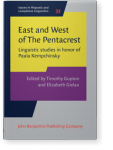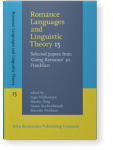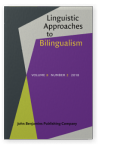Emilie Destruel Johnson
List of John Benjamins publications for which Emilie Destruel Johnson plays a role.
Articles
2021 Chapter 1. Interpretation of focus in Haitian Creole se-clefts East and West of The Pentacrest: Linguistic studies in honor of Paula Kempchinsky, Gupton, Timothy and Elizabeth Gielau (eds.), pp. 17–40 | Chapter
While past literature on Haitian Creole focus structures primarily concentrates on predicate clefts (see DeGraff, 1995; Glaude & Zribi-Hertz, 2012; Harbour, 2008; Lefebvre, 1990), few authors use empirical data to justify proposed interpretations of clefts. In this paper, we empirically test… read more
2019 Chapter 8. Compression in French: Effect of length and information status on the prosody of post-verbal sequences Romance Languages and Linguistic Theory 15: Selected papers from 'Going Romance' 30, Frankfurt, Feldhausen, Ingo, Martin Elsig, Imme Kuchenbrandt and Mareike Neuhaus (eds.), pp. 157–176 | Chapter
This paper sheds light on the conditions for post-focal and post-verbal compression in French canonical sentences. We report on a production experiment, which results suggest that arguments and adjuncts are phrased differently, and that length and information structure only exert a significant… read more
2018 The realization of information focus in monolingual and bilingual native Spanish Linguistic Approaches to Bilingualism 8:2, pp. 217–251 | Article
The strategies used to signal information focus — the non-presupposed part of a sentence — in Spanish are under debate. The literature suggests that focus must appear rightmost; however, empirical evidence shows that speakers also realize focus in-situ. Moreover, there is limited research… read more


